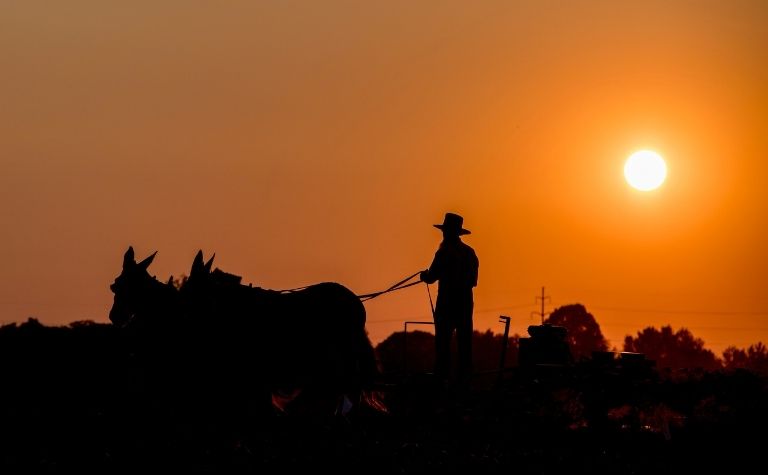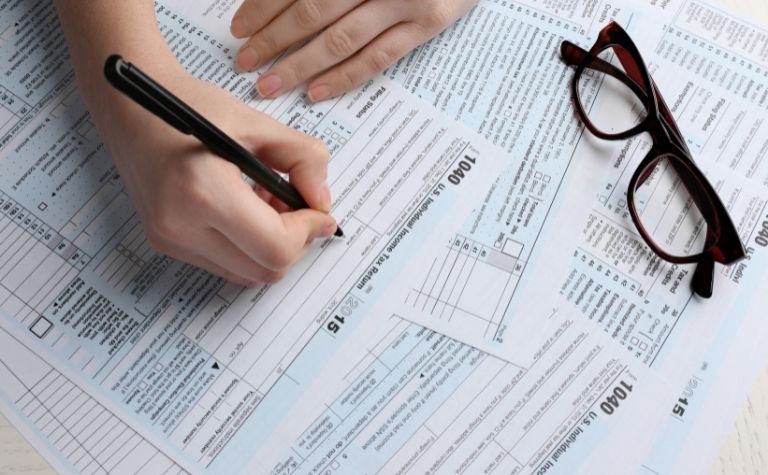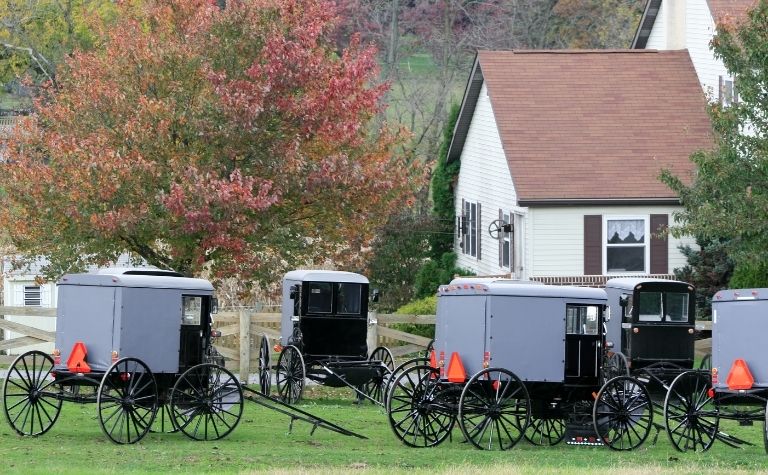The Amish live in tight-knit, insular communities. An outsider (or “Englishman”) might feel that entering an Amish community is like entering an entirely new country. But the Amish are still American citizens subject to American laws and taxes.
Amish people pay taxes. They pay property taxes, income taxes, and sales taxes. But most Amish people don’t take advantage of the government-funded programs that these taxes fund. The Amish believe in respecting their government, even if they disagree.
Amish people pay almost all the same taxes that Englishmen pay except social security and some “sin” taxes (more below). However, they don’t receive almost any government benefits that their taxes fund. This article will take a closer look at the taxes the Amish pay and what kinds of exemptions they’re allowed.
Also, see Are There Any Black Amish People? to learn more.

What Taxes Do Amish People Pay?
The Amish are devout Christians; one rule they follow is respecting the government and paying taxes. But they also believe it shouldn’t be the government’s responsibility to care for the disabled and elderly.
In keeping with these Bible-based convictions, Amish people pay several kinds of taxes, even if they don’t receive the benefits of said taxes.
Amish people pay property taxes and income taxes. If they buy goods outside of their communities, they also pay standard sales taxes. However, they don’t benefit from many programs these taxes fund, such as public schools.
Property Taxes
All Amish people pay property taxes. Many Amish people live on farms of at least 50 acres (20.23 hectares), paying large amounts in property taxes. These taxes pay for public schools, libraries, and other community services.
However, most Amish people never take advantage of these services. They send their children to private schools within their communities. They tend to stay within their insular communities instead of venturing out to public parks or libraries.
The Amish sometimes use emergency services when the need arises. Still, they otherwise don’t see the benefits of their property taxes.
Also, see What Language Do Amish People Speak? to learn more.
Income Taxes
Amish people also pay income taxes. These taxes go to various government programs, including defense, Medicare, and social welfare programs.
The Amish don’t believe in taking advantage of government welfare, so they don’t receive the benefits of their income taxes.
Sales Taxes
Lastly, the Amish pay sales taxes whenever they make taxable purchases.
These taxes go to various local services, including schools, local roads, and emergency services. The Amish use local roads and may need emergency services, but they don’t use public schools, parks, or welfare programs.

What Taxes Do Amish People Not Pay?
Amish people qualify for a religious exemption from some taxes. Their lifestyle also means they don’t pay certain “sin” taxes.
Amish people don’t pay Social Security taxes. They also don’t pay taxes on gasoline, cigarettes, or alcohol because they don’t purchase these products.
Social Security
The Amish don’t pay Social Security, even if an English business employs them. The Amish pride themselves on their self-sufficiency, and their communities care for the elderly and disabled without government assistance.
As a result, they’re exempt from paying Social Security and don’t receive any Social Security benefits.
Many Amish people will cite 1 Timothy 5:8, which says, “But if any provide not for his own, and especially for those of his own house, he hath denied the faith, and is worse than an infidel.” [1]
This verse is their justification for not receiving Social Security or other government welfare programs.
To the Amish, someone should never need to rely on the government for survival because their family and community ought to provide when they can’t.
Also, see Do Amish People Drink Alcohol? to learn more.
Gas Tax
Gas taxes help pay for road construction and maintenance. But to pay gas taxes, one must purchase gasoline. The Amish use horse-drawn buggies to get around, so they don’t purchase gas.
The gas tax is one aspect of Amish taxes where the Amish don’t pay a tax but still use the government benefits. They don’t pay the gas taxes that fund their roads, but their horses and buggies still use them and cause wear and tear.
Sin Taxes
Sin taxes are specific taxes added to products that some Christian people (and people of other religious traditions) would consider sinful. They include taxes on things like:
- Alcohol
- Tobacco products
- Gambling
Like the gas tax, the Amish don’t pay sin taxes because of their lifestyle choices and purchases. The Amish don’t buy cigarettes, alcohol, sugary sodas, and candy, and they don’t gamble. These choices mean they don’t pay the additional “sin” taxes on potentially harmful products.

Do Amish People Receive Government Services and Benefits?
Some people who live near Amish communities might worry that their Amish neighbors are freeloaders who don’t pay taxes and live off the government’s generosity. This isn’t the case.
The Amish pay most of the same taxes as their English neighbors while using few government-funded resources.
The Amish don’t receive most government benefits. They believe in relying on their community for services rather than on the government, so they don’t use Social Security or other social welfare programs. They use very few government services, typically only roads and emergency services.
Still, there are some government-funded programs that Amish people will use.
The Amish take their horse-drawn buggies on roads paved by tax dollars. Horseshoes and buggies can damage the pavement, necessitating tax-funded repairs.
They call the police when a crime occurs in their communities. The Amish aren’t opposed to all government-funded programs, just welfare or any program that provides one’s livelihood.
Also, see Do Amish Celebrate Christmas? to learn more.
Tax Credits
Additionally, the Amish often benefit from tax credits.
Most Amish families tend to be large, meaning they often have large tax credits. It’s not uncommon for Amish families to have eight or more children, giving them a tax credit of at least $8,000. [2] These large credits greatly reduce the taxes the average Amish family pays.
Conclusion
The Amish pay most taxes, despite not using government-funded programs. Their religion dictates they must pay taxes but not rely on the government for benefits.
References:
[1] Source
[2] Source
Related Articles
The Amish and Mennonite traditions fascinate many people. Each group's convictions about their Christian beliefs, community values, and the extent to which they should interact with society are...
The Amish are a Christian community, found mostly in America today, with roots in 17th-century Switzerland. Amish people are known for their appearance and simple lifestyle that rejects many modern...
